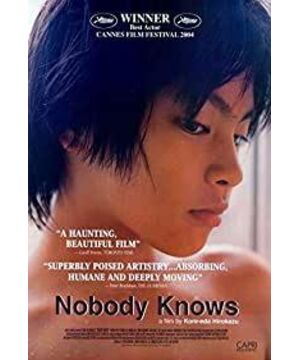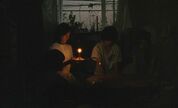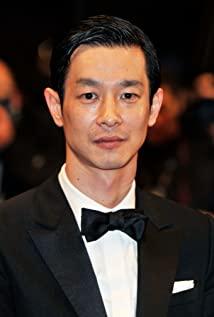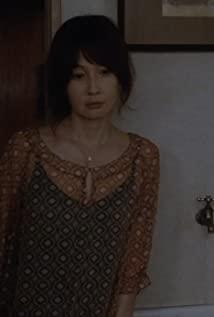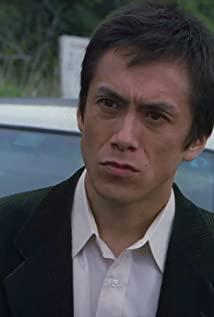Sometimes I focus on watching for a while, sometimes I just listen. Listen to their dialogue and feel the tone of their voice. Although it is Japanese pronunciation, it is more and more able to remember the meaning of the sentence. By carefully figuring out the mood of their conversation, you can feel the joy and sadness that are forbearing there.
This is the story of an unwed mother and her four children with different men.
The youngest girl is called Yukiko. She has a cute baby face and big eyes. When she was carrying the bear backpack her mother gave her and followed her brother out in creaking slippers, the young landlady couldn't help but admire her, saying she was so cute.
The look on her face when her brother angrily told her to poop on the road, when she said no, when her cold body was buried in a suitcase. I think she was just a child, but was easily deprived of the chance to survive.
The older girl, Kyoko, is a quiet, introverted but thoughtful child. Responsible for laundry and cleaning. She has always dreamed of having a piano. When she gave the money she got during the New Year to her brother, her calm face didn't say anything but shook her head gently. But I can feel what life has brought to this child that is beyond her age, how greedy she is a child of mother's love, but she can only hold her clothes silently after her mother leaves to recall the little bit of mother's love. .
The youngest son Mao is lively and naughty. Such children seem to be seen everywhere. They should be pampered and pampered, but when he is hungry and eats paper to satisfy his hunger, when he soaks cold rice in the residual soup of instant noodles and eats it with relish At that time, I looked at the infinite sorrow in my heart.
The eldest son is sensible and precocious, and is responsible for buying food, cooking and taking care of his younger siblings. He also longed to play as much as he wanted, to go to school, and to have friends. But when their mother left, he carried all the pressure, and in this 12-year-old boy's transparent eyes, he could see loneliness, helplessness, anger, and sadness.
It is such four children, but they each have different fathers. One winter morning, the mother left the eldest son a little money and a note and quietly left them. The children have been in the mood to wait for their mother's return, and when their savings are exhausted, the four children face starvation, the power and water in the home are cut off, and the room is messy and dirty. Only friends who work in convenience stores secretly feed them some food that is about to expire. Until the youngest girl died of illness, their mother was also silent.
You might say this woman is too selfish. But why is she so helpless and sad when she quietly shed tears in the dark. She looked at her son and said with joy and pride that he looked more and more like his father.
I know she was in love and longed to be loved. Even if she is naive and naive, she hopes to be happy. Her tired face is full of helplessness and sadness, and she always strives to pursue it. Even though she was injured again and again, she still abandoned her children to bet on the possible happiness that time.
"Can't I be happy? Who is the most selfish person? It's your father." She complained in a low voice with her slightly childish but obviously aging face. Who is the most selfish person?
I can understand the tears that quietly ran down her cheeks, how heavy and painful it was. But I can't sympathize with her. When suffering came, she chose to escape, and chose to leave everything to the children with tender arms.
And the manager of the convenience store, the middle-aged man with drooping bags under his eyes.
A kind but helpless female clerk, the
landlady's slender figure is holding a dog with bulging eyes all day long.
The guy who complained that his mom bought him sneakers that didn't fit.
The girl who secretly discarded her classmate's textbook late at night.
There is an infinite extension behind every character and scene detail, you can think of the state of every level of this society. The sigh of life is contained there. There are no ups and downs in the whole film, and no climax scenes. The director digs into every detail in a calm and cruel way, and people have nowhere to escape in the deepest feeling. You can only wait and watch silently, as if you were one of them.
Of course, you were already on the show.
View more about Nobody Knows reviews


